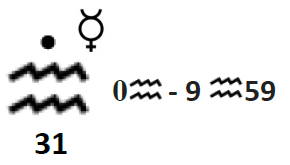PANDORA

Pandora (“All-Gift” or “All-Gifted”), the bringer of misery and evil, the Greek Eve, the first woman…and one of the best examples of how the Divine Feminine has been maligned and degraded in patriarchal culture.
Pandora’s best known story is how she opened her jar (commonly described as a box) and let loose disease, suffering, misery, and death into the world, ending the Golden Age of humanity. The first woman is so easily blamed for the problems or evils of men. Of course, the bright side to this story is that hope remained in the box, allowing humanity to forever “keep” hope even in the most challenging times.
However, where does this story actually start? Why did Pandora even have such a jar? To answer those questions, we need to go back to Prometheus, the thieving, deceitful, ingenious, forward-thinking hero of mankind.
Prometheus (“forethought”) was a Titan and the one responsible for the creation of humanity out of clay (hence Mary Shelley’s Frankenstein, or the Modern Prometheus). Prometheus fashioned men out of clay and loved them, but Zeus was not a fan. Consequently, Zeus demanded that these men offer sacrifice to the gods – the best portion of meat and food. Seeing how this caused suffering to his creation (oh, so it did existed before Pandora!), Prometheus came up with a trick to fool the gods and benefit men. Prometheus slew an ox and created two piles of potential offerings for the gods. In one pile, he put all the choice pieces of meat and covered it with either the hide or some undesirable organ. In the other pile, he put the bones but covered them with juicy fat. Zeus chose the pile covered in fat and was angered – and embarrassed – to find he had been tricked. Zeus’s response to this trickery and shame? Take away man’s life line – fire.
Prometheus was obviously unhappy with the struggles (yep, those existed before Pandora too) this presented to his creation, so he stole fire back for men. Again, this angered Zeus but he decided on another, more passive-aggressive tactic – Pandora. After all, what better way to address the infighting of males than to place it on a woman?
So, with the help of all the gods, Pandora was created. She was made of earth and given a gift from each of the gods – beauty, intelligence, cunning, craftiness, etc… In short, Pandora was the blueprint for all women to come.
Along with all those gifts, Pandora was also given the box/jar. This was either intended as a wedding gift or a dowry (depending on the version) but Pandora was instructed to never open it. Despite Prometheus warning his brother to never accept gifts from Olympus, Epimetheus (“afterthought”) did accept Pandora as his wife. Some time later, curiosity got the better of Pandora and she lifted the lid on that jar…
We are now up to date on the most common version of Pandora, but is that really the whole story? As is usual with goddesses and women in antiquity, it is not.
Before the patriarchal philosophy took hold, Pandora was something like Gaia (and perhaps even another name for Gaia), an earth goddess whose gifts flowed endlessly forth as food and life for her people. In some cases Pandora was described as Anesidora – “sender of gifts”. There is, in fact, some debate over the actual meaning of the name Pandora. While it is generally accepted to mean “all-gift”, it is argued whether that means that Pandora received all gifts or that she gives all gifts (“all-giving”).
Furthermore, the contemporary description of the box is a mistranslation of the original Greek “pithos”, which was an earthenware jar used to store food and wine, or used to bury the dead – symbolic of both the womb and tomb of the Goddess.
As for Pandora’s union with her husband, they produced a single child, a daughter named Pyrrha. Pyrrha married Deucalion and when the gods sent the great flood that washed humanity from earth, Pyrrha and her husband were the only two to survive. They repopulated the earth, by casting the “bones of their mother” behind them. Pyrrha understood this to mean the stones of the earth. So a woman was born of every stone Pyrrha threw and a man from every stone Deucalion threw. Thus, Pandora could be thought of as the great ancestress to all women.
Female power and curiosity have been a theme in many stories, all of which show that questioning curiosity in a negative light (Pandora, Eve, Bluebeard, etc…). In a patriarchal society deathly afraid of the power of women, it is hoped that these stories frighten women into submission. Unfortunately, it has worked for far too long. However, women have begun to rebel, to revolt, and to question. There are more women in the sciences than ever before, innovating, advancing, and progressing our understanding of the world, the universe, and the Goddess.
So keep asking, keep wondering and, above all, stay hopeful. The Goddess has always been here, we just need let Her out.
